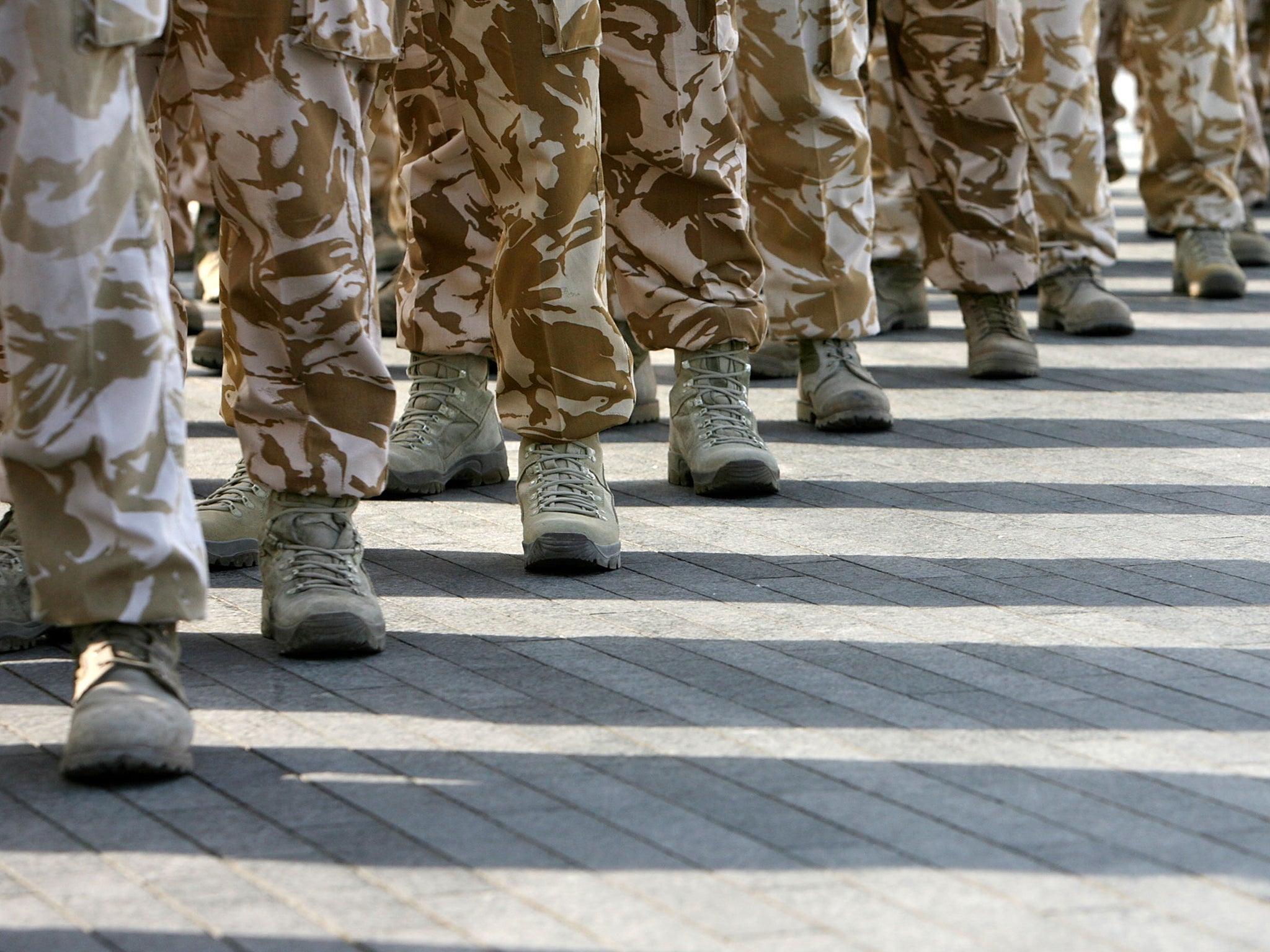Army job cuts: 4,480 soldiers made redundant by MoD
Government is attempting to cut number of regulars from 102,000 to 82,000 by 2018

A total of 4,480 Army personnel have been made redundant in the latest round of military job cuts, the Ministry of Defence has announced.
More than 4,000 soldiers will be handed their notice as the Government tries to reduce the number of full-time regulars from 102,000 to 82,000 by 2018. To compensate, the MoD plans to inflate the number of Territorial Army reservist troops from 19,000 to 30,000 over the same period.
The MoD has insisted operational capability will not be affected and assured remaining employees there will be no further reductions in manpower in the next spending review, but critics have hit out at the move.
The shadow defence secretary, Jim Murphy, told the Associated Press that the redundancy notices being issued today “represent not just broken promises but a failing strategy” to reform the British Army.
“The Government has a flawed plan for reforming the British Army,” he said. “There is a huge effort going into sacking soldiers but nowhere near as much is being done to plug the gap by recruiting new reservists. These redundancies represent not just broken promises but a failing strategy, and the level of voluntary applicants will be a signal of morale.”
Announcing the latest cutbacks, which were originally thought to involve an additional 800 soldiers, Phillip Hammond said: “It is with great regret that we have had to make redundancies to deliver the reduction in the size of the armed forces, but unfortunately they were unavoidable due to the size of the defence deficit that this Government inherited.”
“Although smaller, our armed forces will be more flexible and agile to reflect the challenges of the future with the protection and equipment they need. They will continue to be the bedrock of our society and provide extremely rewarding and exciting careers for future recruits.”
But the redundancies come just days after General Sir Peter Wall, the head of the Army, said that further cuts to the MoD’s £34 billion budget would compromise Britain's ability to fight and win wars.
He said: “We have got to the point in a number of parts of our set-up where we can’t go any further without seriously damaging our professional competence and our chances of success on the battlefields of the future.”
The MoD said personnel selected for redundancy would be told face to face by their commanding officer. It said it had done everything to avoid “non-applicant” redundancies, and 84 per cent of those losing their jobs in the latest tranche had applied for redundancy.
Those who applied for voluntary redundancy will leave on or before December 17 this year, and those who did not will leave on or before 17 June 2014.
Soldiers who did not apply and are currently serving, preparing for or recovering from operations where they receive an operational allowance, such as Afghanistan, are exempt, as are those recovering from serious injuries sustained on operations.
The MoD said the Army will need to make further reductions to reach its final target of 82,000, likely to involve a further tranche for Army personnel, and a small number of medical and dental personnel from the Royal Navy and Royal Air Force.
Chief of the General Staff General Sir Peter Wall said: “This redundancy scheme is a difficult but essential step towards our A2020 structure. We owe our sincere gratitude to those leaving the Army for their service over such a demanding period of operations.
“We will support them and their families as best we can on their path to civilian life. Meanwhile we continue to need plenty of young and talented recruits to ensure the Army is fit to meet the challenges of the future.”
Additional reporting by Press Association
Join our commenting forum
Join thought-provoking conversations, follow other Independent readers and see their replies
Comments